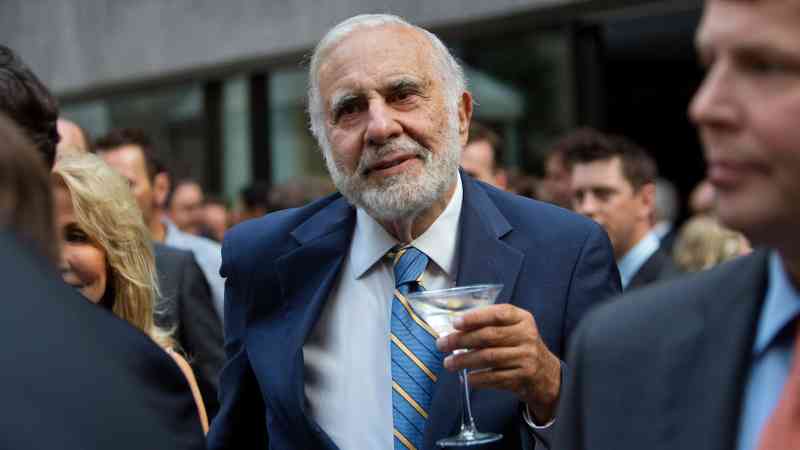How publishers are coping with an online advertising revolution
Publishers are grappling with the phasing out of third-party advertising tracking software by stepping up investments in their own customer data and direct sales teams.
Google’s Chrome, the most popular internet browser with a 60 per cent market share, has begun deprecating third-party cookies — the pieces of code that track consumers as they browse different sites across the internet and build up a picture of their habits and buying intentions to serve up relevant adverts.
If the Competition and Markets Authority approves Google’s proposed privacy-focused alternative model, then by the end of the year third-party cookies no longer should appear. Apple’s Safari and other browsers such as Firefox already block them as the default option.
“It could possibly be the biggest change since the beginning of ads on the internet, it is that big,” said Nat Francis, digital operations director at Bauer Media, whose titles in print and audio reach a monthly audience of 13.5 million in the UK alone.
Nick Flood, global ad product and revenue operations director at Future Publishing, said that “cookie deprecation across Chrome is perhaps one of the biggest ecosystem changes in the last ten years”. Future has more than 350 million monthly readers globally.
The deprecation of third-party cookies has taken several years to happen, with Google first saying that it wanted to act in 2020, after Apple had done so with its Safari browser. Publishers such as Bauer and Future have been working on their response. It requires more selling of their advertising inventory directly to advertising agencies and brands because they receive far less money for website impressions sold on auction sites without third-party cookie tracking, as advertisers will not be able to target ads as effectively at specific shoppers.
• Google starts closing cookie jar for advertisers
However, managing the shift away from auction platforms towards more direct deals with advertisers and their agencies is proving tricky. So-called programmatic advertising using real-time auctions for the advertising slots is a highly efficient process. The revenue can be significant: Bauer makes roughly half its ad revenues from programmatic adverts, with many smaller publishers being even more reliant on them.
That said, Bauer, the publisher of TV Choice, Britain’s bestselling print magazine, as well as the likes of Grazia and Take a Break, has been grasping the nettle. It has been working with Permutive, a London-based technology business, to mine its own customer data in a way that makes it simple for advertisers to buy ads that target certain groups of consumers. Francis, 44, said he was expecting “significant” growth this year in its revenues from the system, which it calls Bauer Illuminate.
“We have seen anything up to a 53 per cent increase in engagement around our ad campaigns since we made the switch to work with Permutive,” Francis said. “All of our sales people will sell Illuminate to the agencies. It is not reliant on third-party cookies and it is all about those direct relationships with those advertisers and buyers.
“There is an opportunity for us to be more responsible for our own future, given what Google is doing. Where Bauer and publishers similar to us will be able to offer something different to advertisers is the fact that we will be able to look in a bit more detail. Where Google might be just able to say here is someone who is interested in buying a car, we will be able to say here is someone who is interested in a sports car, a family car or an SUV, and get into a bit more detail. You may well still have advertisers buying at scale via Google, but there will also be big niches that publishers can offer some real value around.”
Flood, 40, said: “Publishers are well placed in terms of the value exchange that they have with users. We publish loads of very specialist, very expensive content and the ability of publishers to garner consent from a user is very high. But the regulatory landscape is becoming more complex.”
Future publishes a wide range of magazines, from Country Life to GamesRadar+ to Marie Claire. It also uses Permutive’s platform to classify its own “first-party” data and to sell access to its audience in a privacy-compliant way.

Joe Root, 34, the co-founder and chief executive of Permutive, said that the end of third-party cookies and the strengthening in data protection laws, such as GDPR, had been “the best thing to ever happen to publishers. It allows them to take control of their data. In digital advertising, your data is what allows you to build a big business. That is the huge opportunity for publishers.
“The huge challenge is that they haven’t invested in their go-to market teams over the last ten years, so they are having to re-learn their relationships with advertisers, agencies and the whole ecosystem. You have this strange world where, near term, you have this absolute chaos for publishers and, in the long term, this huge opportunity.”
The attraction of selling more ads directly to advertisers rather than using auctions is that publishers can charge a higher price per thousand impressions. “You can typically charge five to ten times more than you might get from an open auction perspective,” Flood said.
However, Francis warned that many publishers would struggle to re-establish direct relationships with advertisers. “It will depend on the publisher,” he said. “We have always maintained those relationships with our key advertisers because we are more of a specialist publisher. We need to step that up before the end of this year.”
Google’s privacy initiatives are not the only significant change facing publishers and advertisers this year. Publishers are also keeping an eye on work by the Information Commissioner’s Office on the way in which websites secure permission from their users to collect, manage and use their data. The ICO is concerned that publishers and brands running ecommerce websites do not make it as easy to reject all unnecessary tracking as they do to accept all of it.
It also has flagged that many leading websites are still adding advertising cookies to users’ browsers without giving users the opportunity to decline them. More than four fifths of the 100 websites contacted by the ICO last year have now complied, with the remainder facing enforcement action. Another 100 of the top sites have received warning letters.
Separately, the ICO has been consulting on what it calls a “consent or pay” mechanism for advertising using personal data. “This gives people the choice to use a website for free, but only if they consent to their personal information being used for personalised advertising, or pay a fee and not be tracked,” it said.
Irrespective of the future regulatory model, Francis is confident that Bauer is strongly placed. “The quality of the data that we have got, the accuracy, [means] buyers will know exactly where our data has come from. It is our data from our sites and it is all privacy-safe,” he said.
Yet he remains realistic that it will be some time before publishers can take back more control of the revenues they generate from advertising. “The jury is still out [on whether publishers will end up as winners]. There is a lot of work going on at the moment to try to maintain the status quo. Lots of people [in the industry] are working towards replicating what we have at the moment.
“As a publisher, Bauer is working really hard on our Illuminate product, which we think is different to the status quo. But it is very challenging as we do have a lot of money that we do generate programmatically and so we have one eye on that.
“Our preference would be that [programmatic] went down and our direct [sales] went up, but there is still a lot of road to get down before we understand how that is going to work out. I am optimistic that it could work in the favour of publishers, but I am realistic enough to know it might not quite be the case.”




Post Comment